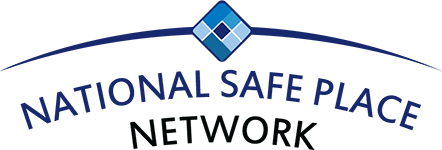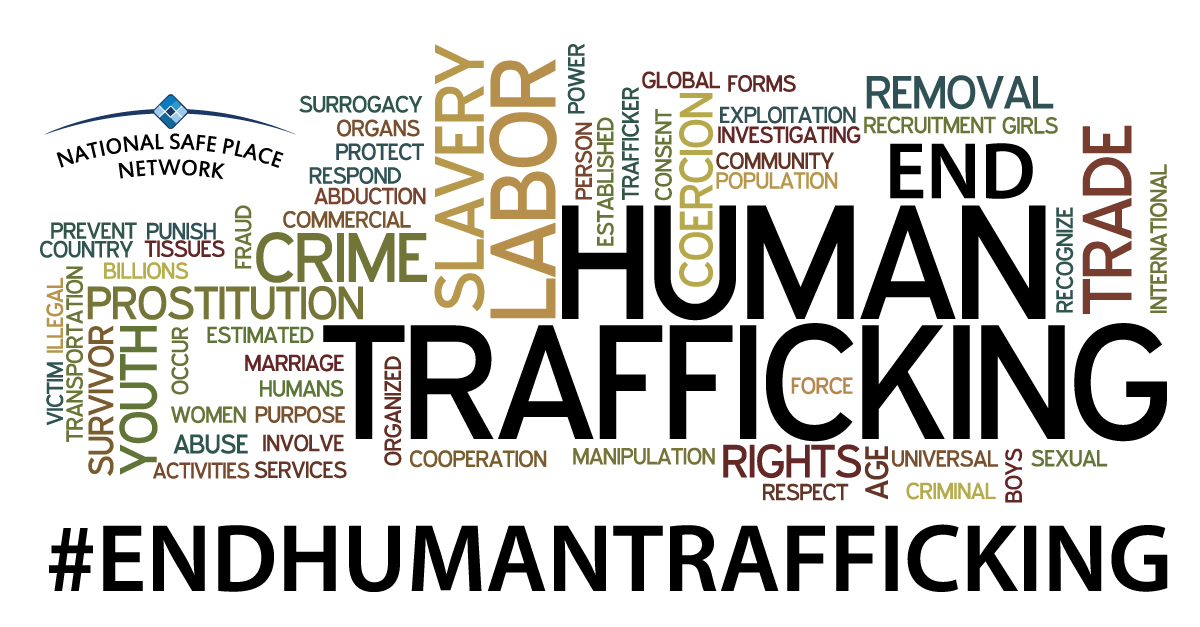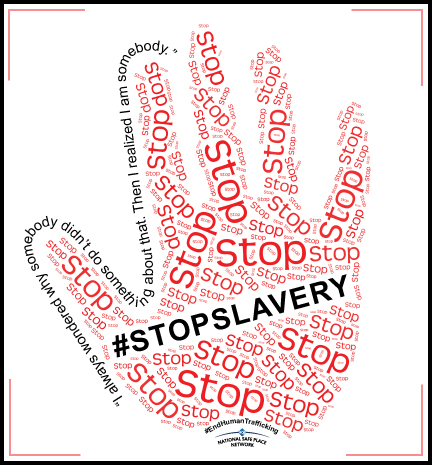- Home
- About
- Membership
- Services
- Member-Exclusive Services
- Public Engagement Opportunities
- Support Center
- Request Support
- NSPN Connect
- Member Profile
- NSPN Members
- Licensed Safe Place Partners
- Online Learning (The D.O.T)
- Safe Place Ambassadors
- Board of Directors
- Funding
- News
- Publications
- Contact
- Donate
National Slavery and Human Trafficking Prevention Month
January is National Slavery and Human Trafficking Prevention Month, also known as National Human Trafficking Awareness Month. We encourage you to join us throughout the month as we come together to raise awareness of human trafficking and combine our efforts to prevent it. We have an action-packed month filled with a variety of activities including webinars, blogs, social media outreach, and other educational and awareness-building activities. These activities were planned to make it easy for YOU to learn more about human trafficking and make a difference. Learn more, share the resources with others, take action if you suspect trafficking, and celebrate the survivors of this terrible crime. About Human TraffickingThe Trafficking Victims Protection Act of 2000 (TVPA) defines “severe forms of human trafficking” as, "The recruitment, harboring, transportation, provision, or obtaining of a person for:
Trafficking in persons, or human trafficking, is a widespread form of modern-day slavery. It's a crime that involves the exploitation of a person for the purpose of compelled labor or a commercial sex act through the use of force, fraud, or coercion. If a person younger than 18 is inducted to perform a commercial sex act, it is considered a crime regardless of whether there is any force, fraud, or coercion. Human traffickers target all populations around the world and in our own neighborhoods: women, men, youth, children, citizens, non-citizens, English speakers, non-English speakers. Some groups, such as runaway and homeless youth, native individuals, domestic violence victims, and LGBTQ population are particularly vulnerable to human trafficking. Victims are recruited and lured by traffickers with the false promise of a better life, love, and job opportunities. Later, traffickers use violence, threats, and manipulation to controls their victims. Homeless youth who are forced to trade sexual acts with an adult in exchange of something of value (i.e. shelter, food) are considered victims of domestic sex trafficking. Human trafficking is the fastest growing criminal enterprise of this century, growing from a nine billion to a 32 billion dollar global industry in a little over a decade. There is no typical trafficker, and it has been shown that traffickers can be parents or other close family members, family friends, boyfriends/girlfriends, employers, smugglers or strangers. Traffickers can be part of an organized enterprise or can work alone. Street gangs, for example, are known to traffic minors into the drug and sex markets. Don’t ignore the facts. Slavery exists and we can work together to end it.
Get InvolvedAre you “aware” of how much raising awareness makes a difference? It’s not uncommon to hear someone ask “How does raising awareness actually help make a difference?” Unfortunately, some people choose to ignore awareness campaign efforts because they believe they are not making a difference. If you’ve heard this question – or even asked it yourself – try breaking the term “raising awareness” down. Raising – to increase the amount, level, or strength of. Raising awareness increases the amount of knowledge you have about a specific topic such as human trafficking, therefore increasing the efforts to put an end to it. It’s up to you - and all of us - to work together to end human trafficking. Consider the cost of your decision. Ready to start making a difference now? Spread the word. Let others know what you're learning about each week during the month. If you're using social media, feel free to use the hashtag #EndHumanTrafficking. Sample Social Media Posts: Facebook: Twitter:
|






